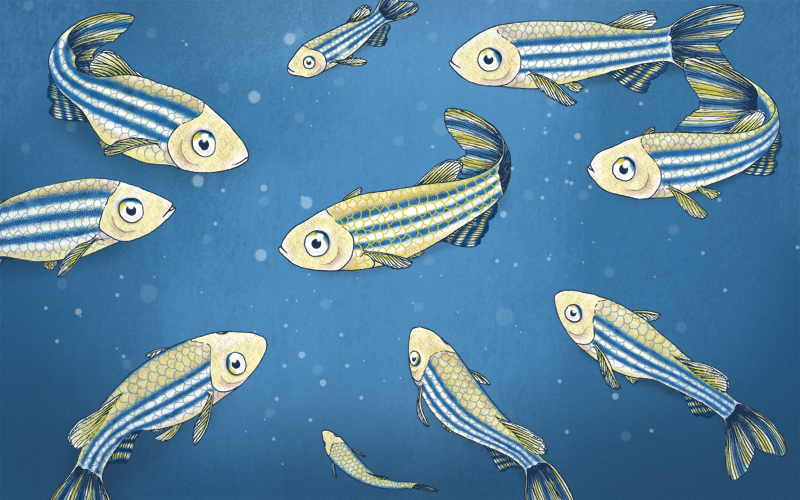Genetics or social environment: who wins in the influence of behaviours?

Researchers discovered that the social environment in which the individual develops can revert genetic effects of its behaviour, something particularly important to take into account when experiments resort to genetically modified animals. The study published in ELife analysed behaviours associated with oxytocin, one of the known “happy hormones”, and showed that these can be reverted in the individual, with or without oxytocin, depending on the social group it interacts with.
Interactions between individuals of the same species shape many aspects of their biology, including their social behaviour. Social genetic effects occur when the phenotype of an individual, defined as a set of their observable characteristics, is affected by the genetic features of others from the same species. A team of researchers led by Rui Oliveira studied the role of oxytocin, an important molecule for the regulation of social bonding. Using the zebrafish (Danio rerio) as a model organism, they aimed at understanding how social genetic effects impact the interaction between the individual and the social environment or, in this case, the shoal. For that purpose, the team used two kinds of zebrafish: ones similar to the ones found in nature and others in which the oxytocin gene was removed, thus rendered no longer functional.
The results of the study show that both the social preference and social integration and influence change depending on whether the shoal has oxytocin or not. On the contrary, it’s the genetic features of the individual that determine the ability to create memories and therefore distinguish between different shoals. “The genetic differences of the social group interact with the ones of the individual during the acquisition of social behaviours and development, and in some cases they can revert behavioural characteristics associated to oxytocin”, explains Rui Oliveira.
These results have a special relevance when experimental models are designed by editing genes. “Our results highlight the need for caution in the design and interpretation of studies that resort to genetically modified organisms, since the observed behavioural differences might be a consequence of social genetic effects rather than the genetic edition itself”, adds Rui Oliveira.
Read paper
Read Press Release
